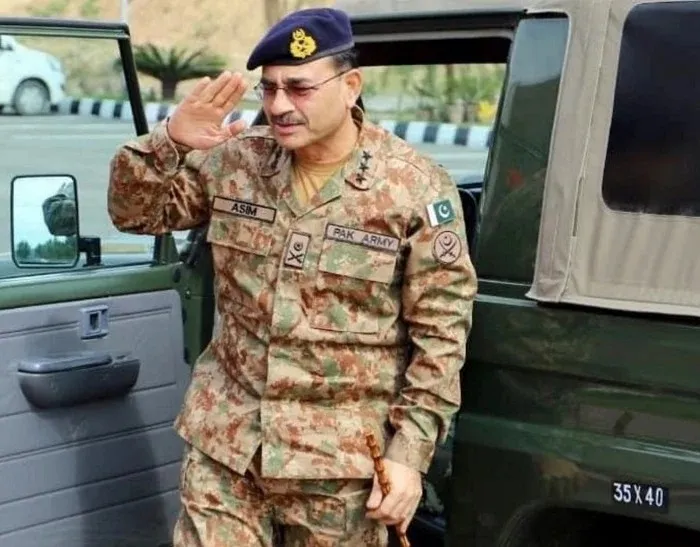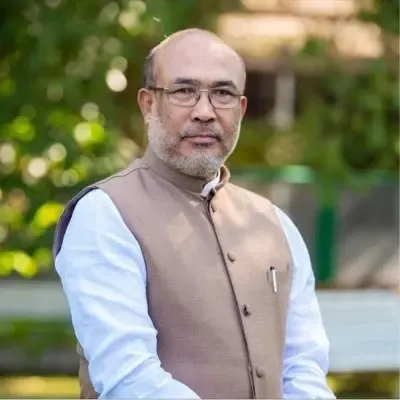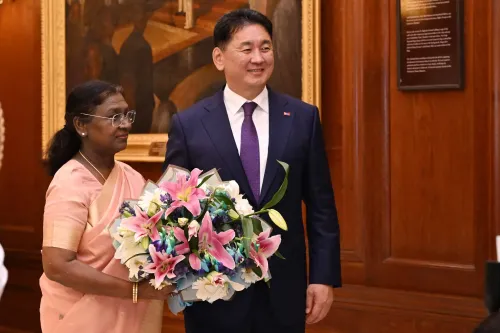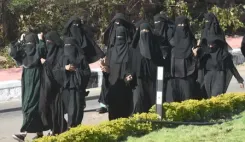Is Pakistan Stuck in a Never-Ending Cycle of Terrorism?

Synopsis
Key Takeaways
- Pakistan's military has historically utilized militant groups as tools for statecraft.
- The recent relocation of Jaish-e-Muhammad and Hizbul Mujahideen showcases the Army's strategy shift towards internal security.
- These groups are now positioned to combat internal threats from the TTP.
- This dependence on proxies reflects a failure to develop a robust internal security apparatus.
- Pakistan's actions pose significant risks to regional and global stability.
New Delhi, Oct 14 (NationPress) Pakistan has transformed into a nucleus of militancy and terrorism. It serves as a breeding ground where militants are not merely born but are meticulously trained, groomed, and deployed according to the strategic calculations of its military apparatus.
For many years, the Pakistan Army and its intelligence agency, the ISI, have converted jihadist factions into tools of statecraft. Whenever under strain, the Army simply reallocates these proxies to new conflict zones, never dismantling them, but rather continuously recycling them.
The most recent instance of this perilous approach is the transfer of Jaish-e-Muhammad (JeM) and Hizbul Mujahideen from Pakistan-occupied Jammu and Kashmir (POJK) to Khyber Pakhtunkhwa. This maneuver was not initiated by these militant entities; it was orchestrated by the Pakistan Army.
Yet again, the military has shown its dependency on terrorism as a policy instrument, shamelessly maneuvering pieces on a chessboard stained with innocent blood. Why were these groups repositioned? The reasons reveal a cynical motive. First, the Pakistan Army requires new intelligence sources to monitor the escalating threat posed by Tehrik-i-Taliban Pakistan (TTP), a militant faction now posing the greatest internal security challenge to the nation.
Second, the Army seeks to station these factions near the Afghan border to serve as auxiliary forces against cross-border infiltration and to observe Taliban activities. In both scenarios, rather than relying on trained troops or professional intelligence, the Army resorts to its long-standing militant allies.
Hizbul Mujahideen and Jaish-e-Muhammad—previously unleashed against India—are now assigned the task of shielding Pakistan from the very monsters that its military has created.
Hizbul Mujahideen, since its inception in the late 1980s, has been the primary proxy of Pakistan in Kashmir, operating as the largest Islamist militant organization fighting against India in Jammu and Kashmir. Its commanders, comfortably based in Pakistan, have openly coordinated with the ISI while their operatives executed ambushes, assassinations, and propaganda efforts across the Valley.
Conversely, Jaish-e-Muhammad, infamous for its violent acts, was founded by Masood Azhar and is responsible for some of the most brutal attacks in India, including the 2001 Parliament attack and the 2019 Pulwama suicide bombing. Both factions are officially recognized as terrorist organizations worldwide.
However, within Pakistan, they continue to receive protection, funding, and freedom of movement—because they align with the Army's agenda. Now, rather than being deployed to conduct warfare against India, these groups have been reassigned to combat Pakistan's internal adversaries. This shift reveals the Army's desperation. The Afghan Taliban’s resurgence in 2021 was initially hailed in Rawalpindi as a strategic win.
For decades, Pakistan has nurtured the Taliban, providing them with safe havens and support. Their takeover of Kabul was anticipated to grant Islamabad unprecedented leverage in Afghanistan. However, that dream quickly soured. The Afghan Taliban have refused to restrain the Pakistani Taliban (TTP), who have been emboldened by their brethren’s victory.
Rather than disintegrating, the TTP has only grown more powerful, intensifying attacks on Pakistani military personnel, police, and civilians. In an ironic twist of modern geopolitics, the Pakistan Army now finds itself besieged by the very jihadist forces it once championed.
This is where Jaish-e-Muhammad and Hizbul Mujahideen come into play. By relocating them to Khyber Pakhtunkhwa, the Army has effectively repurposed its foreign-facing proxies for domestic survival. These factions now serve as intelligence assets in tribal regions where the Army's regular surveillance capabilities are lacking. They can infiltrate militant cells, provide advance warnings, and act as informants on TTP movements.
Simultaneously, their personnel are stationed along the porous Durand Line to strengthen Pakistan's fragile border defenses. In essence, they are being utilized as mercenaries in the Army's own homeland. However, this redeployment also highlights the Army's glaring failure. A competent institution would enhance its intelligence framework, train its soldiers, and assume direct accountability for counterinsurgency.
The Pakistan Army, bloated by years of unchecked funding and political dominance, chooses the lazy and reckless path of outsourcing its conflicts to militants. This is a strategy driven by expediency rather than foresight. The Army claims to be the nation’s guardian, yet it entrusts that responsibility to groups internationally labeled as terrorists.
For the residents of Khyber Pakhtunkhwa, this situation is nothing short of a nightmare. The region has already endured decades of conflict—first during the Afghan jihad against the Soviets, then under the TTP insurgency, and finally through devastating Pakistani military operations.
Now, the presence of Hizbul Mujahideen and Jaish-e-Muhammad operatives only exacerbates the militarization of daily life. Some locals are coerced into accepting them as protectors against the TTP, while many justifiably fear that their presence will prolong instability. These militants do not bring peace; they usher in ideology, violence, and the specter of unending conflict. The Afghan Taliban’s stance further exposes Pakistan’s hypocrisy.
For years, Islamabad has justified its support for the Taliban as a necessary counterbalance to Indian influence in Afghanistan. Now, when the Taliban refuse to restrain the TTP, Pakistan laments betrayal. But what else could it expect? Militant groups are loyal only to their ideology, not to the generals of Rawalpindi. By once again relying on Hizbul Mujahideen and Jaish-e-Muhammad, the Army is repeating the same mistakes that have plagued Pakistan for decades—utilizing proxies to fight battles it cannot win itself.
The international community should regard this situation with alarm. Pakistan’s redeployment of Hizbul Mujahideen and Jaish-e-Muhammad does not signify reform. There is no evidence that Islamabad is curbing terrorism. Rather, it serves as clear proof that militancy remains integral to Pakistan’s security strategy. These groups have not been dismantled; they have merely been shifted from one front to another. Yesterday, they were weapons against India.
Today, they serve as shields against the TTP. Tomorrow, they could resurface in Kashmir or Afghanistan once again. The cycle never ceases because Pakistan has constructed a system where terrorism is not an aberration but a fundamental policy. The Pakistan Army, in the meantime, emerges from this episode exposed and humiliated.
Despite consuming substantial national resources, it now relies on terrorists to secure its borders and gather intelligence. An institution that presents itself as the pride of the nation is, in truth, a parasite that thrives by fostering jihadists, manipulating them, and sacrificing its own citizens to preserve its power. Pakistan’s military is not a defender of the state; it is the architect of its own despair.
For India, the relocation of these groups serves as yet another reminder that Pakistan has not relinquished its terrorist infrastructure. For the global community, it is evidence that Pakistan’s claim of being a victim of terrorism is a convenient deception. Victims do not cultivate terrorist organizations for decades. Victims do not redeploy banned groups to engage in domestic conflicts. Victims do not play double games with militants and then expect sympathy when the backlash occurs. Pakistan is not a victim; it is the leading perpetrator of terrorism in South Asia.
The transfer of Jaish-e-Muhammad and Hizbul Mujahideen from POJK to Khyber Pakhtunkhwa is more than just a tactical move. It symbolizes Pakistan’s ongoing addiction to jihadist proxies.
It demonstrates that the Army has learned nothing from history—neither from the repercussions of the Afghan jihad, nor from the chaos caused by the TTP insurgency, nor from the international isolation it endures.
By clinging to terrorism as a policy instrument, Pakistan condemns itself to perpetual instability, economic ruin, and moral decay. Pakistan may believe it is engaging in a clever game, shifting militants like chess pieces to counter immediate threats. But in reality, it is playing a dangerous game with its own future.
Each redeployment, each alliance with terrorists, pulls the trigger again. And as history has shown, it’s only a matter of time before the weapon fires back.
Until Pakistan dismantles the very machinery of jihad it has constructed, it will remain what it has long been: not a victim of terror, but the world’s foremost factory of terrorism, a state where the Army cultivates militants to fight its wars and sacrifices its citizens in the name of strategic depth.









